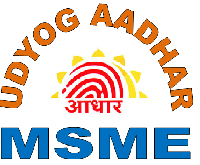
Lauding the economic reform agenda initiated by the Prime Minister Narendra Modi-led NDA Government during its first term, stakeholders from the MSME sector have come up with their wishlist for the new Government.
iguring on top of their list are the concerns related to the segment’s traditional pain points — a high cost of credit, unavailability of adequate and timely funding avenues and regulatory and compliance related bottlenecks, particularly about GST.
Summing up the perspective of the MSMEs, Anil Bhardwaj, Secretary General of the Federation of Indian Micro Small & Medium Enterprises (FISME), says, “If the government moves to implement the recommendations of RBI’s Expert Committee on MSMEs, which is likely to submit its report June end covering all aspects of MSMEs including finance, marketing, technology etc, that would take care of almost all the key demands of MSME sector.”
alking about on-the-ground performance of the 25% procurement criteria under the Public Procurement Policy (PPP) as announced by Modi on November 2 last year, Bhardwaj stresses that the government should ensure that, keeping in view the spirit of the policy decision, procurement in central government purchase, provisions against delayed payments, priority sector lending, defence offsets etc, are implemented on the ground smoothly and remain hassle free.
Aimed at giving a fillip to the MMSME sector, regarded to be the ‘growth engine’ of the Indian economy, Modi had announced the 25% procurement criteria as part of his 12 mega sops announced last year.
Under this, Public Sector Undertakings (PSUs), which were earlier mandated to source 20 % of their annual procurement from MSMEs, were thereafter mandated to source at least a quarter of their requirement (25 %) from the MSME sector. Further, out of the 25% procurement mandated from MSMEs, 3% was reserved for women entrepreneurs. Despite the ambitious vision chalked out, the changed norm is said to fall short of its intended aims.
Speaking on similar lines, Sameer Vakil - cofounder and chief executive officer, GlobalLinker, an MSME enabling platform, underlined that while NDA-I had worked to address many fundamentals of the economy and business environment - introducing GST and rationalising rate structures, demonetisation, ease of doing business, loan in 59-minute amongst other matters, NDA-II is expected to frame policies and drive programs to help Indian MSMEs and startups, take their rightful position in the global economy.